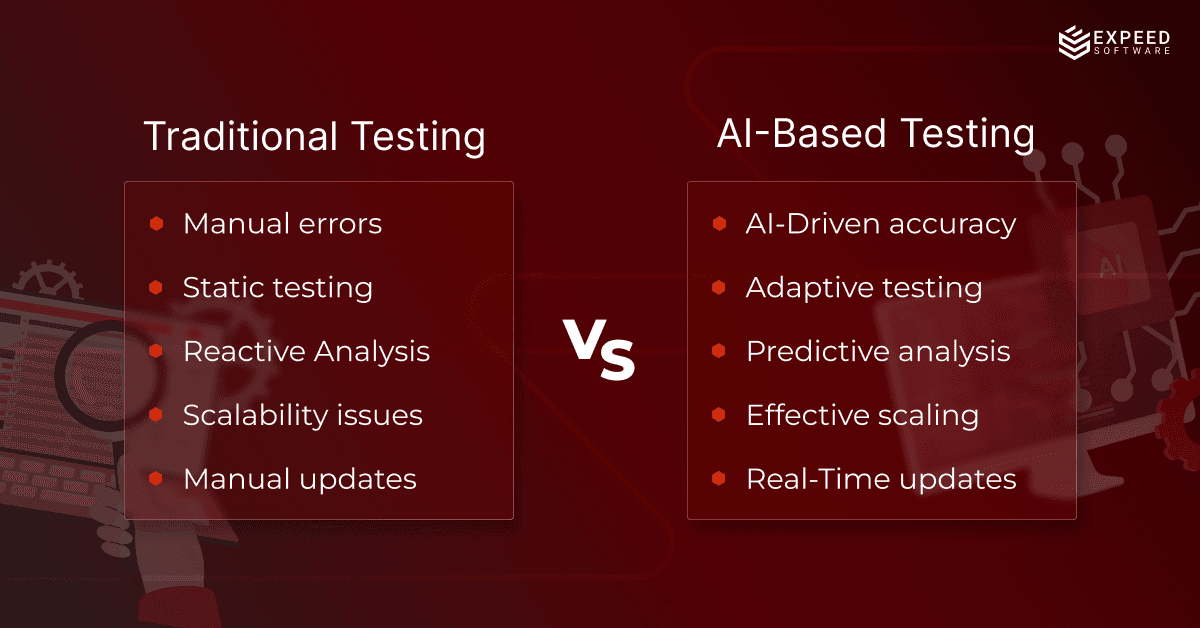Over the past few years, software development has evolved dramatically, and so has the way we test it. For decades, manual testing has been a critical part of ensuring software quality. Yet as applications grow more complex and businesses demand faster releases, manual testing alone can’t keep up. Automation has become the obvious answer, but for many testers who don’t code, that transition still feels out of reach.
Generative AI is helping change that. Tools like GitHub Copilot have introduced a new way for people to bridge the gap between manual expertise and automation. For manual testers, this means a real possibility of stepping into playwright automation work—without having to become full-time programmers overnight.
The Challenge of Moving from Manual to Automation

Manual testers often play an unsung role in ensuring software quality. They know how an application should behave, where things might go wrong, and how to catch subtle bugs. But transforming this knowledge into automation scripts has historically demanded coding skills—understanding syntax, writing loops, handling selectors, and debugging errors.
This skill gap has left many testers feeling sidelined. Teams end up relying on a handful of automation engineers while manual testers keep writing test cases in documents, running them by hand, and documenting results. The process slows down releases and strains resources, particularly when applications undergo rapid changes.
So, the big question is, can someone who doesn’t code still participate meaningfully in automation? Thanks to advances in AI and new technologies like Playwright MCP, the answer is increasingly yes.
Enter AI Test Automation Tools Like Copilot
GitHub Copilot is part of the new wave of AI-powered tools making software development and now testing more accessible. It acts like a helpful assistant, capable of reading your natural-language instructions and transforming them into working code snippets.
For testers, this means you can describe a test in plain English, like logging into an app, clicking a button, or checking for a message, and Copilot can suggest code that performs those steps in a testing framework like Playwright. It’s a way for non-coders to see their manual test cases turned into automation scripts without having to learn all the intricacies of writing code themselves.
But here’s the thing: while Copilot can generate code, it doesn’t actually run it. It’s a brilliant code-writing companion, but it can’t execute your tests or interact directly with a web browser or an API. That’s where something else needs to step in.
The Role of Playwright MCP
This is where Playwright MCP makes a difference. MCP stands for Model Context Protocol; it’s a bridge that connects AI-generated instructions to tools that can execute real-world tasks.
Think of it like this: Copilot writes the test script, but it’s Playwright MCP that takes that script and actually performs the clicks, inputs, and checks inside a real browser. MCP enables agents, essentially smart software processes, to safely carry out the instructions generated by Copilot.
Unlike older methods that rely on screen pixels or visual matching, Playwright MCP works at the structural level of the webpage. It uses the page’s underlying accessibility tree to interact with elements like buttons, fields, and links. That means tests are far more reliable and less likely to break because a button shifted slightly on the screen.
The combination of Copilot and Playwright MCP is a powerful pairing. Copilot assists non-coders in creating automation scripts, while Playwright MCP guarantees their reliable execution across various browsers and environments.
A Simple Workflow for Non-Coders
Here’s how the process looks for a tester who doesn’t code.
Start by writing a test scenario in plain English, describing what you want to check in your application. Next, use Copilot to transform that description into Playwright test code. Once you have the code, you can validate it for accuracy, making sure it matches your intent and business logic.
After that, the code is handed off to the agent that runs it using Playwright MCP. The tests execute in the browser, performing actions just as a human would. Finally, you check the results, review logs, and refine your scripts if needed.
This approach eliminates the need for manual testers to begin learning programming languages from the beginning. They can focus on what they already know best—how applications should behave—and let AI help with the technical parts of automation.
The Benefits of Combining Copilot and Playwright MCP
Using Copilot alongside Playwright MCP opens up new possibilities for teams looking to speed up testing without compromising quality. Testers who previously worked only in manual testing can now contribute to automation efforts, helping reduce bottlenecks and accelerate release cycles.
Automation scripts can be created faster because testers don’t have to manually write every line of code. Playwright MCP ensures that the tests run reliably, avoiding the common pitfalls of fragile UI automation. And because this approach is based on natural language, the barrier for entry is significantly lower for non-coders.
It’s an exciting shift. What was once a specialized skill reserved for automation engineers is becoming accessible to anyone with testing experience and curiosity to explore new tools.
What to Watch Out For
Of course, no solution is perfect. While Copilot is impressively good at generating codes, it can occasionally produce scripts that are incomplete or not entirely correct. Human oversight is still crucial to check and adjust the output as needed.
Complex test scenarios with intricate logic may still require custom coding that goes beyond what AI tools can generate. And setting up Playwright MCP does require some technical steps, like installing Node.js and configuring your development environment.
But for testers willing to experiment, the learning curve is far less steep than jumping into automation from scratch. The payoff can be significant both in time saved and in the expanded capabilities it offers to testing teams.
The Future of Testing for Non-Coders
Playwright MCP's capabilities and AI tools like Copilot are revolutionizing the testing process. They’re making it possible for manual testers to participate in automation without needing to become full-time developers.
It’s a shift that could transform how QA teams work. Non-coders can focus on designing thorough test scenarios, while AI handles much of the code generation. Agents execute those scripts reliably, giving teams faster feedback and greater confidence in their applications.
For testers who have always wanted to move into automation but felt held back by the coding barrier, the present could be the perfect time to leap forward. With Copilot and Playwright MCP working together, the divide between manual and automated testing is finally starting to close.

